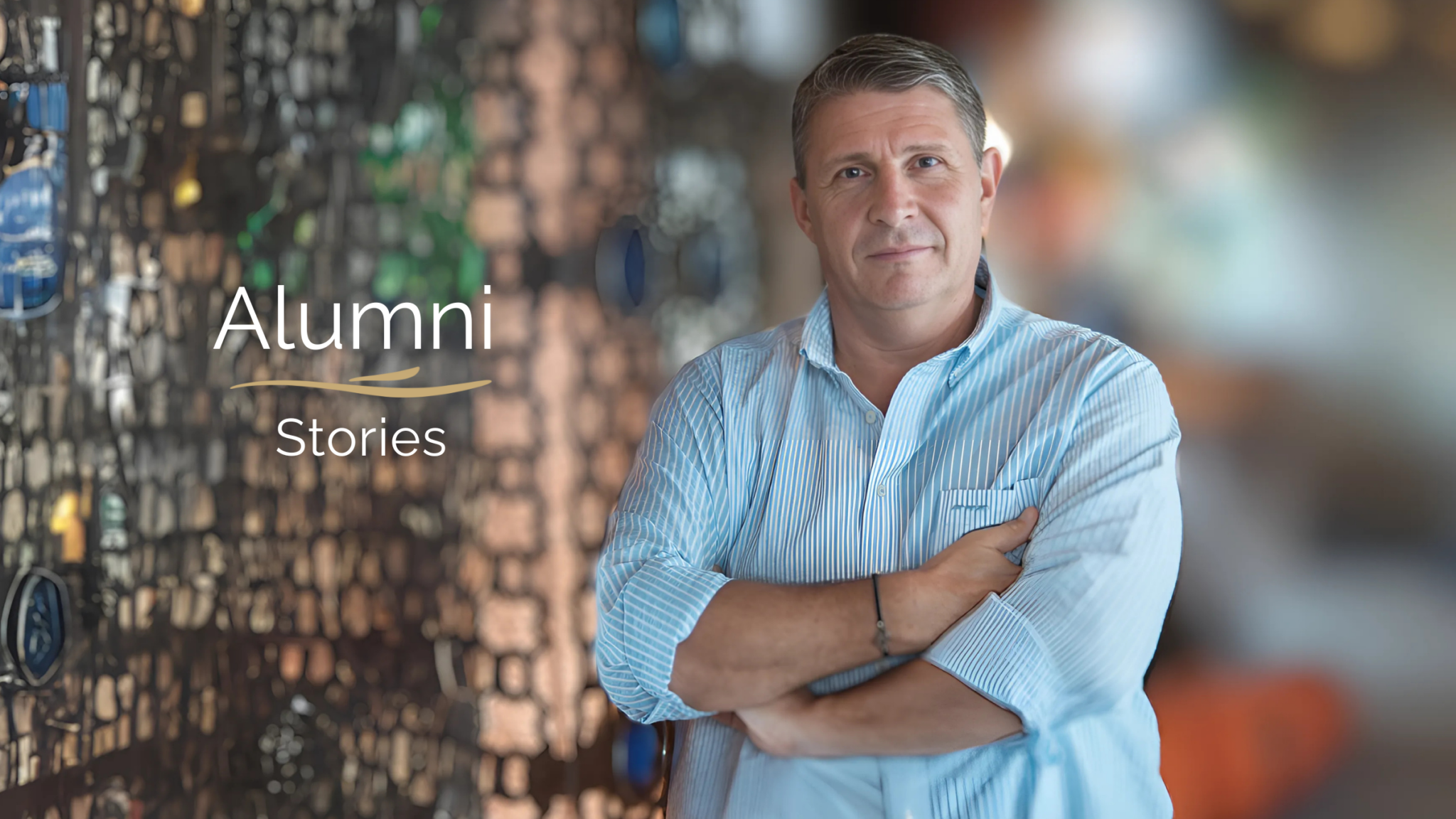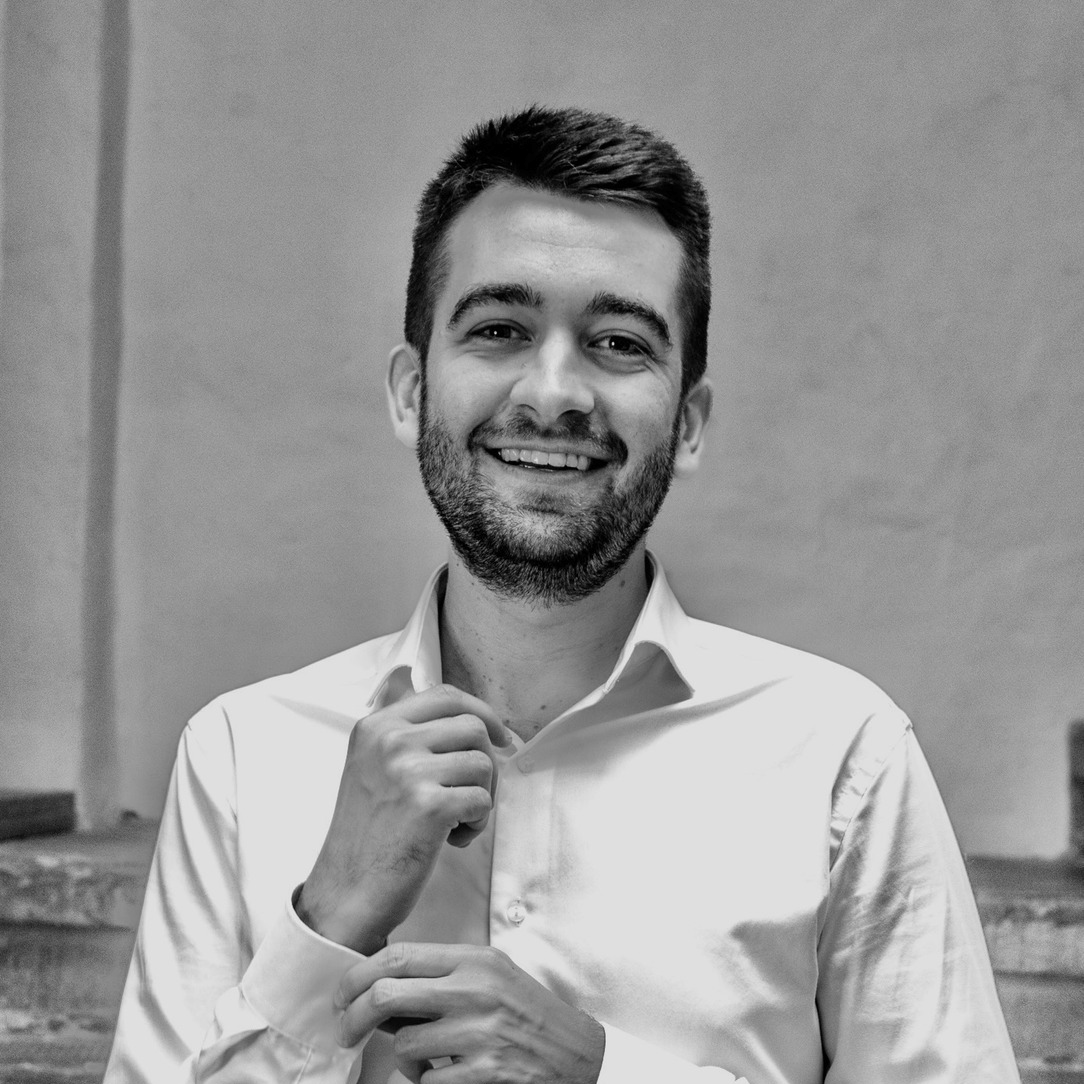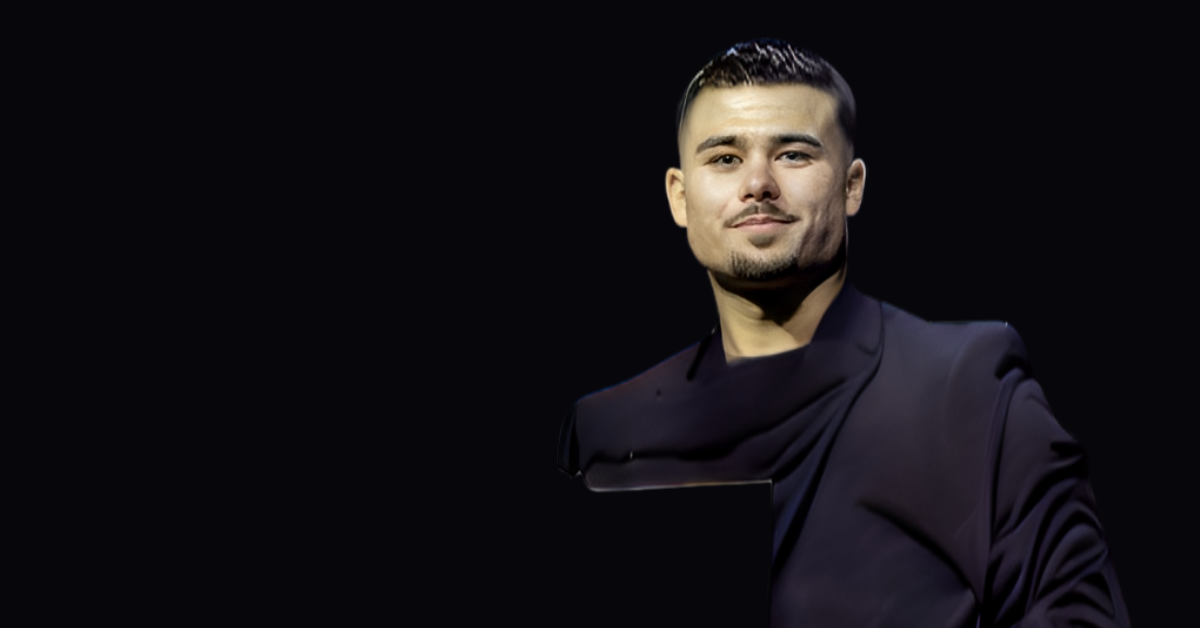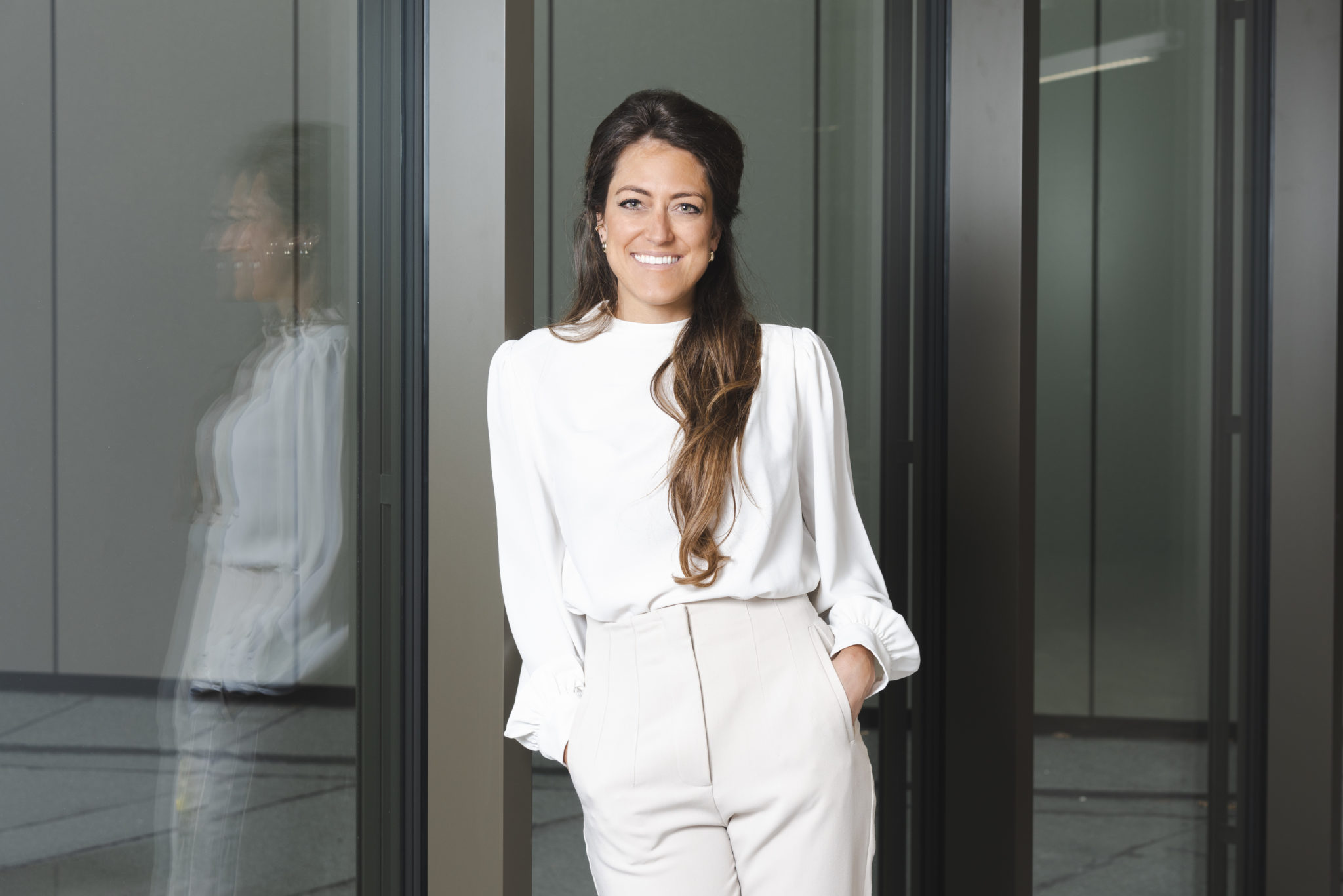Interview
Claude Sauter
Hello Claude,
Meet Claude Sauter, a leading figure in the luxury hotel industry, in an exceptional interview conducted by Susanne Welle, Director of the École Hôtelière de Genève. While in Thailand, Ms. Welle took the opportunity to visit this illustrious alumnus to discuss his career and experience in Asia.
From his early days in Phuket to his current position as General Manager of The Slate, an avant-garde hotel designed by Bill Bensley, Claude Sauter has not only raised the standards of the hospitality industry, but has also paid tribute to the rich and fascinating history of the places where he has worked.
This rich and inspiring exchange takes us to the heart of his management philosophy, his innovation strategies and his outlook on the evolution of the hotel sector.
Susanne:
Hello Claude, thank you so much for welcoming us. It's a pleasure to see you again, especially here in Thailand. So, you graduated in 1992, is that correct?
Claude:“1992, yes, correct.”
Susanne:
And start Thailand in 1997.
Claude: “Actually, it was even earlier, back in 1994. It’s been 30 years since I first set foot in Phuket.”
Susanne:
Today, as General Manager of this magnificent hotel, could you tell us a little about your career?
Claude: “Absolutely, I started out in Phuket 30 years ago. My career path has always included working in independent hotels, never in chains, which is quite unusual since, generally speaking, you change jobs a lot in our industry. However, I’ve been lucky enough to find stable positions, staying in the same hotel for up to ten years. I started in the south of the island before moving to the west coast. I worked in five-star establishments, including an 80-room boutique hotel and another with almost 300 rooms. I also helped open a hotel in Khao Lak. Later, I managed another hotel, The Surin, for seven years, located next to the famous L’Amanpuri hotel.
Currently, I manage The Slate, where I arrived in September 2021 after a brief interruption due to the Covid. It’s an independent hotel owned by a Thai family from Phuket who have owned the property since 1986. They were among the first to open resorts on the island in the 1980s. The hotel adopted an industrial theme to honor the history of the Chinese families who once worked in Phuket’s tin mines, which greatly influenced the hotel’s design.”
Susanne:
The hotel is truly magnificent. So, the name and decor are inspired by mining history, aren't they?
Claude: “Exactly. The history of the hotel is closely linked to that of its owners and their family heritage. They called on Bill Bensley, a renowned American architect, to discuss and shape this vision.
The result is a raw yet elegant design that incorporates traditional Thai architecture and highlights the gardens, essential elements for the owner. This fusion creates a unique experience, blending industrial modernity and Thai authenticity, which is quite rare and exceptional in the hotel sector.”
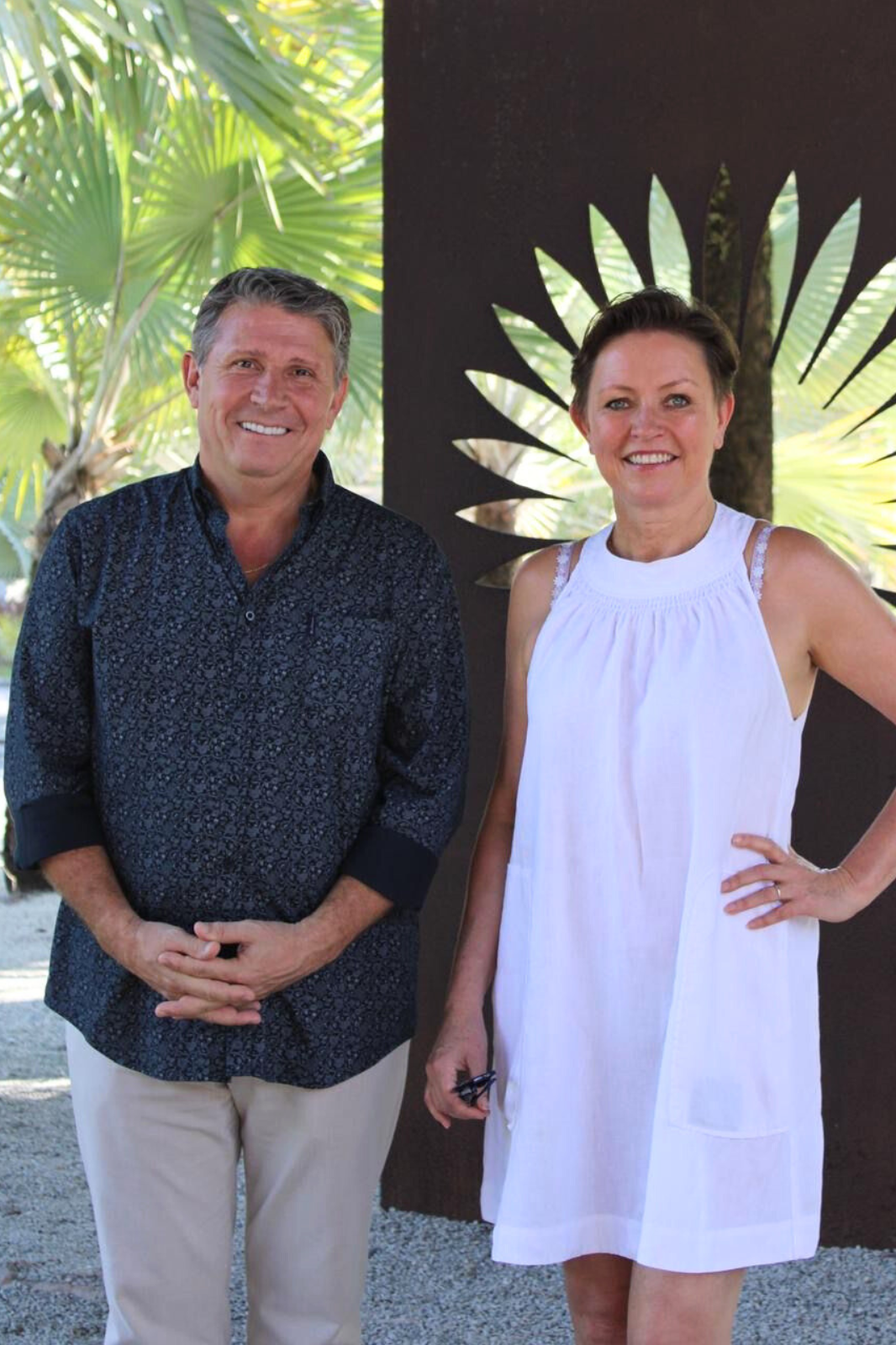
Susanne:
Can you tell me what prompted you, the young Claude, freshly graduated from the École Hôtelière de Genève, to leave for Thailand just two years after your studies?
Claude: “In fact, I chose the École Hôtelière de Genève precisely with the intention of traveling. Before that, I had already completed a catering apprenticeship in Switzerland.”
Susanne:
Cook?
Claude: “No, I worked in the service department, starting out as an apprentice. Initially, I was interested in cooking. My father, seeing this, suggested I do a one-week internship in a friend’s restaurant to see if it suited me.
After this experience, I realized that I preferred to be in direct contact with customers; I liked the interaction that room service allowed, which at the time was still marked by jackets and bow ties. So I opted for a sommelier apprenticeship at theHotel Continental in Lausanne, which still exists today. Before attending hotel school, I worked on cruise ships and then in Paris for eight months. In 1990, I had the opportunity to enter the Geneva Hotel School. At the time, I was living near Lausanne and commuting to Geneva every day. After completing my training and a six-month internship, I returned to Paris for less than a year.
Then, with my girlfriend at the time, we decided to leave for Asia, with no specific destination in mind. My only knowledge of Asia was limited to a trip to China in 1989. We consulted brochures at a travel agency in Lausanne, discovering destinations such as Koh Samui and Phuket. In the end, we chose Thailand. At the time, a newspaper called l’Hôtel Revue carried ads that pointed me in the direction of this destination.”
Susanne:
It brings back memories. I've had similar experiences myself.
Claude: “Exactly. I came across an advert for a hotel in Phuket, the Cape Panwa Hotel, looking for a catering manager. I thought, why not try my luck and send in my CV. I sent my CV by fax, at a time when e-mail was not yet common.
A few weeks later, I received a call at 3 a.m., forgetting about the six-hour time difference. After an initially surprising conversation, we agreed to a more formal discussion. Regarding the salary, after a few adjustments according to local standards, they asked me to start quickly for the high season. They wanted me to be there for Christmas, but that wasn’t possible, so we agreed on January 1. Unfortunately, my flight from Zurich was cancelled due to technical problems, forcing me to spend New Year’s Eve at the airport.
Finally, I arrived in Phuket on January 2nd and started work on the 3rd. The adjustment was rapid but necessary, given the new environment and the cultural and linguistic differences. The first two years were a challenge, but also a period of intense learning. After that, my wife and I decided to return to Switzerland in 1996 to pursue other opportunities and see our family.
However, on a return vacation to Phuket, my wife was called back by her former employer, so we decided to return to Thailand at the end of 1996. This involved a lot of preparation in a short space of time, but we’ve stayed in Phuket ever since. My career in the hotel business continued to progress, and I took on increasing responsibilities, becoming manager in 2004.
Despite challenges such as the 2004 tsunami, epidemics and political unrest, the quality of service and the positive attitude of the Thai staff have always encouraged us to stay. Thailand is often called the land of smiles, and working here has shown us why: the excellence of the service and the human warmth are truly incomparable.”
Susanne:
You were born in the canton of Vaud. Could you tell us why you chose the École Hôtelière de Genève?
Claude: “The main reason for my choice was the length of the program. After my apprenticeship between the ages of 16 and 18 and a few years of work, not to mention a stint in the army, I opted for a program that better suited my needs at EHG.
Having already had some practical experience, I found the first part of the training quite accessible. The management and theoretical aspects were more demanding, but that’s where I learned the most. I was looking for a quick diploma to consolidate what I’d learned and open new doors, without prolonging my studies too much.
What’s more, the Geneva school was smaller, offering a more intimate atmosphere, which suited me perfectly compared to a large institution. That’s why Geneva was the ideal choice for me.”
Susanne:
Do you have a particular anecdote or memory from your time at the Geneva Hotel School, even though your time there was relatively short?
Claude: “I have a rather striking anecdote from my practical exam. We had a cookery teacher, Monsieur Ganter, who was renowned for his rigor; he was French and quite strict, in the old-fashioned way. During the exam, I had to prepare a cookie roll. Under stress, I confused salt with sugar. The cookie, although visually perfect, was actually inedible.
During the tasting, Mr. Ganter called out to me with a serious expression and quickly pointed out the error. Despite this, they decided to let me take the exam, recognizing the effort and quality of the execution. It’s a memory that still stays with me. More generally, my year in Geneva was very enriching. The school had an international atmosphere, offering a warm, human-scale environment. These human aspects really appealed to me and left me with some very good memories.”
Susanne:
With regard to your approach to team management, what philosophy or management style do you adopt in your interactions with your colleagues?
Claude :
“InThailand, culture and education have a strong influence on behavior, particularly in the workplace and in the family. Traditionally, Thais expect an authority figure to make decisions, whether at school, at work or in the family. The manager or head of a company is often seen as the one who dictates what action is to be taken. Although this mentality is gradually evolving, it is still quite marked by an authoritarian system where the boss gives orders to be carried out.
However, this model does not correspond to my management style. I prefer a participative approach, based on trust, setting an example and guiding my teams in the right direction. What’s interesting today is the evolution of the younger generations in Thailand. These new generations no longer wish to simply receive instructions without explanation. They want to understand the meaning of their work and be able to take the initiative.
My current challenge is to make my department heads aware of this new dynamic. It’s essential that they adapt their management to the young people entering the hotel and restaurant business. It’s not like 10, 15 or 20 years ago, when instructions were applied without question. Today, we need to motivate young people and make them want to get involved. We face similar challenges to those in other countries: attracting and retaining talent. In Thailand, we’re still lucky enough to be able to count on a majority of local workers in the sector, but this is becoming more complicated. As education levels improve, many people now aspire to office jobs, in banks for example, and are less inclined to occupy positions such as housekeeper or steward.
To meet this challenge, we are developing a number of partnerships with technical training establishments, which could be likened to apprenticeship schools. These institutions train young people in the restaurant and hotel trades. We work closely with them, welcoming numerous trainees throughout the year. The aim is to give them a hands-on experience of what it’s like to work in a restaurant or kitchen, and then to offer them long-term employment. With a 210-room hotel, we are fortunate to be able to employ over 450 people, and we are keen to offer opportunities to young people motivated by these professions.”

Susanne:
Effectively, the ratios are two to one. This is not applicable in Switzerland.
Claude: “In Switzerland, that’s not possible, not even in palaces. Here, we’re still lucky enough to be able to count on a large staff, which means we can offer services that are difficult to provide elsewhere. For example, doing the room twice a day. Managing a large team is made easier by the presence of good department heads.”
“It’s essential to involve staff in projects, which requires a lot of communication, both with managers and with employees. My role is also to dialogue directly with employees, and not just pass on instructions to senior management.”
“Employees work in a family spirit: the hotel becomes a second home for them. After work, they share meals, go out together and strengthen their bonds. This bond between senior management and staff is crucial, as it contributes to motivation, especially during demanding periods like Christmas and New Year. Despite the workload, they carry out their tasks with pleasure and a smile, making the experience even more enjoyable.”
Susanne:
In conclusion, do you have any advice for a young hotel school student's future in the hospitality industry?
Claude: “Today, for a young person, I think it’s essential to gain experience abroad, whatever the destination, be it Europe or Asia. This is particularly interesting in our hotel business, as it enables us to discover different practices and cultures.
Asia, for example, attracts many thanks to its dynamism and numerous opportunities, with a fast-growing market and few economic crises. After graduating from a hotel school, it can be difficult to find a position immediately, but many hotel chains and groups offer management programs for young graduates. What’s more, although expatriate positions were once plentiful, more and more local professionals are being trained, while profiles with European experience are being sought to better meet the expectations of an often European clientele.
My advice to young graduates is to go abroad for professional enrichment. If they don’t like it, they can always come back, but it’s a valuable experience. Today, thanks to platforms like LinkedIn, job hunting and networking have become simpler and more accessible. In fact, I recommend that young people create a LinkedIn profile, even if they have no experience, and start building their network. The hotel business remains a small world where connections count for a lot. Modern tools make these contacts much easier, much more so than in the days when resumes were sent by post.”
Susanne:
Susanne: ``That's right. GastroSuisse's aim is to train people for the industry's professions.
Claude: “To attract more young people to these professions, we need to offer them several options. There isn’t just one solution, there are several. Some will be more interested in catering, hospitality and hands-on experience, while others may prefer a more business-oriented aspect. However, it has to be said that hospitality is a profession in which experience and the passing of years are the most important learning factors.
It’s in the field that you really gain experience. Hotel school provides us with the necessary grounding, but after that, it’s up to us to continue to evolve and learn. For my part, and thanks to technology, I’ve been lucky enough to be able to train remotely. In 2014, for example, I completed an online degree at Cornell University in finance and revenue management. It was an online program, because it was impossible for me to travel to Cornell, it was far too expensive. I was able to take the course from Phuket. It was incredible, because it enabled me to continue my training while being at a distance. The field had evolved enormously since what was taught in school, and finance and revenue management didn’t even exist back then. It’s true that today, there are many ways of continuing to learn.
So my advice is: go to a good hotel school, get some experience, and continue your training. There are affordable courses, and some hotels will even finance part of the training. So, when the cost becomes more affordable, it’s much easier to train. What’s more, online courses are often cheaper than those offered at universities or MBAs, which are much more expensive. You really have to take advantage of this.

